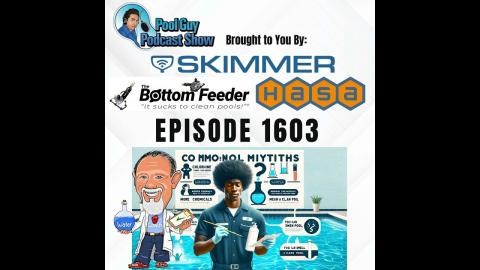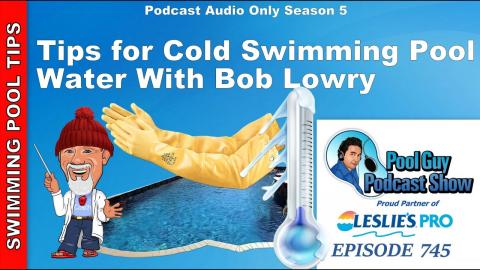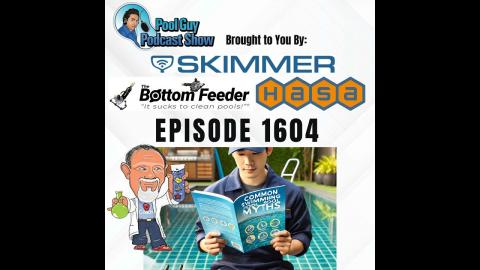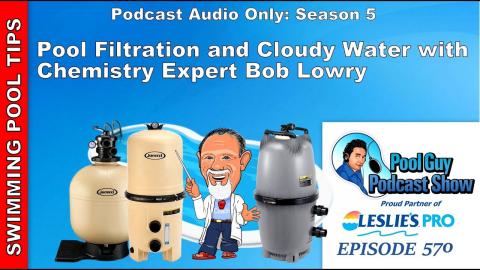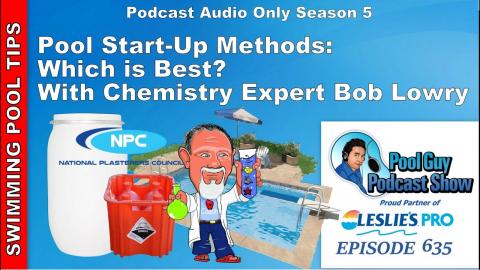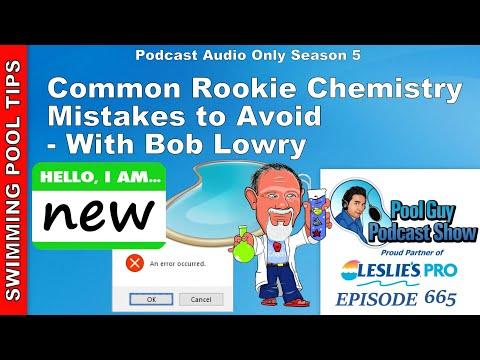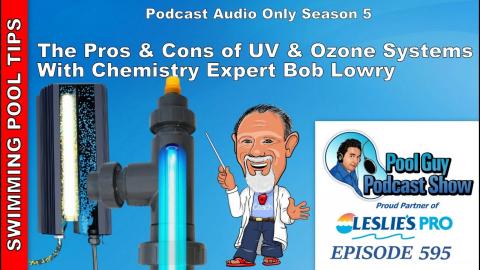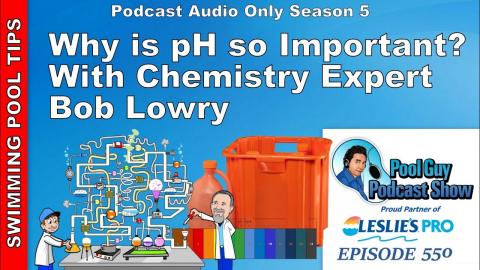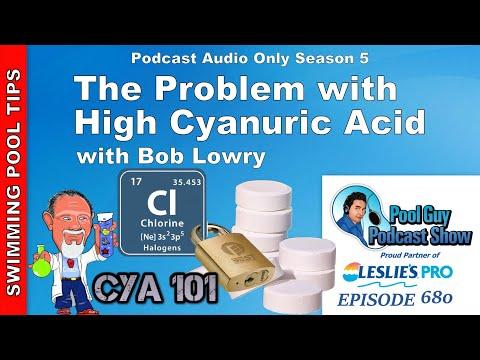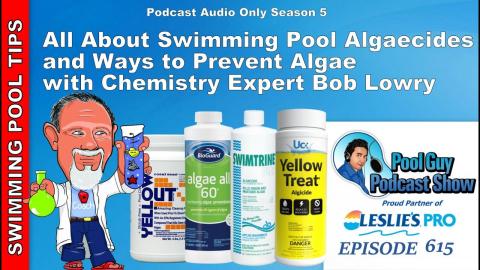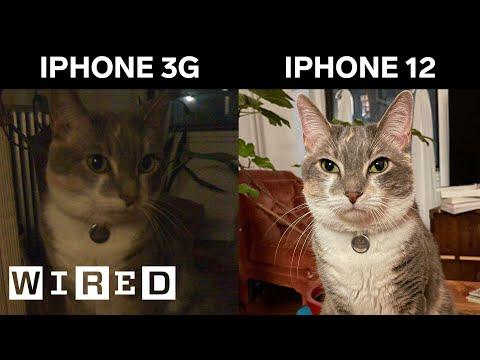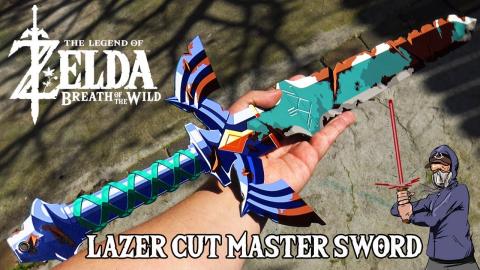Different Chlorine Types for Your Pool with Chemistry Expert Bob Lowry
Description
There are 6 main types of chlorine products on the market today. There is Liquid Chlorine, Cal-Hypo, Tri-Chlor, Dichlor, Gas Chlorine, and Lithium Hypochlorite. The first 4 listed are of course the more common types and you may be familiar with them.
So, what exactly is chlorine, and which is the best type of chlorine for your pool? Chemistry expert Bob Lowry goes over each type of chlorine for you and its pros and cons.
Bob Lowry is the author of over 23 books but this has to be one of his most relevant and shortest books coming in at just 19 pages thick. But it is packed with so many essentials on residential pool chemistry that you will want a copy to carry in your service truck. Bob Lowry has been in the industry for over 47 years and is the Lead Consultant at Lowry Consulting Group, leads the Pool Chemistry Training Institute, and has created the Certified Residential Pool & Spa Certification Program. Learn more at https://pcti.online/
Liquid Chlorine or Bleach is the tried and true standard chemical of choice for most pool service professionals. It is easy to use and relatively inexpensive and it has the least side effects of any of the chlorine you can choose from. It is usually sold in 12.5% active chlorine per gallon with Bleach coming in at about half that strength at 6.5%. It will raise the pH slightly, but it does not contain any Stabilizer or Conditioner making it ideal for all pool types. This means that when you add a gallon of liquid chlorine and your Conditioner level (CYA) is 50 ppm it will stay at 50 ppm even if you add 20 gallons of liquid chlorine.
Cal Hypo is very popular and there are a number of reasons why it is widely used in the industry. It is easy to carry and comes in different strengths 60-75% active chlorine. One of the major side effects is that it contains calcium, so over time it will raise your pool’s calcium hardness. Not an issue if you live in an area with soft water but I caution against the use in areas with hard water. It also has a high pH of around 12 so it will raise the pH in a pool if you use a significant amount each week. It can also make the pool cloudy if you pour a bag directly in. A very powerful form of shock.
Dichlor is a very popular form of chlorine and the granular form makes it very easy to measure and use in a pool. It is pH neutral which means it will not raise or lower the pool pH in any significant way. It does contain a Conditioner, about 45%-50% by weight. So, if you add 10 lbs. of Dichlor to a pool you are also adding about 5 lbs. of Conditioner. Over time this will increase the pool’s CYA levels. A little Dichlor goes a long way making this an ideal chemical to carry on your truck if you service pools. Just don’t overuse it because of the high amount of Conditioner in the product. It is usually about 62% active chlorine by weight.
Tri-Chlor or Trichloroisocyanuric Acid comes in three forms. The familiar 3” tablets that slowly dissolve in your pool, a very fine powder shock and a granular form. About 50% of the Tri-Chlor by weight is Conditioner. So, a 50 lbs. bucket of tablets is about 25 lbs. of Conditioner. If you overuse tablets your pool’s CYA level can go up rapidly. Trichlor tablets are usually 95% to 99% active chlorine. Tri-Chlor tablets have a very low pH of 2-3 so they will lower the pH in your pool. The tablets contain acid in the form of Cyanuric Acid so if one falls into the pool it is likely to stain the surface by burning it.
The powder form of Tri-Chlor shock is a good mix of both power and less Conditioner per pound. It is fast-acting but has a strong chemical smell so use caution when using it. It is less pure than the tablet form and is usually 65%-70% active chlorine. I use it on my route and find it to be effective in shocking a pool.
Tri-Chlor granular is very powerful stuff. It is basically the Tri-Chlor Tablet grounded up in granular form and is 99% active chlorine. Use with extreme caution as the Conditioner in the granular can stain the plaster. The CYA in the tablet is basically acid and if you let it pile up on the pool surface it will stain the plaster as if you dropped a 3” Tablet into the pool. Never add this to the skimmer and if you do use it for Black or Mustard algae make sure it is evenly dispersed on the pool surface. Not for use in Vinyl, Fiberglass, or color plaster pools.
Visit my Website: http://www.swimmingpoollearning.com/
eBook: https://www.swimmingpoollearning.com/swimming-pool-care-ebook
YouTube Video Index: http://poolmandave.blogspot.com/2014/03/swimming-pool-tips-reviews-how-to-video.html – A list of all of my videos.
Blogger: http://poolmandave.blogspot.com/
Facebook: https://www.facebook.com/swimmingpoollearning/
Twitter: https://twitter.com/Mrdgvb1
Join me on Patreon: https://www.patreon.com/poolguycoaching
Podcast: http://www.buzzsprout.com/110832
Podcast Website: https://www.thepoolguypodcastshow.com/
Coaching Site: https://poolguycoaching.com/


